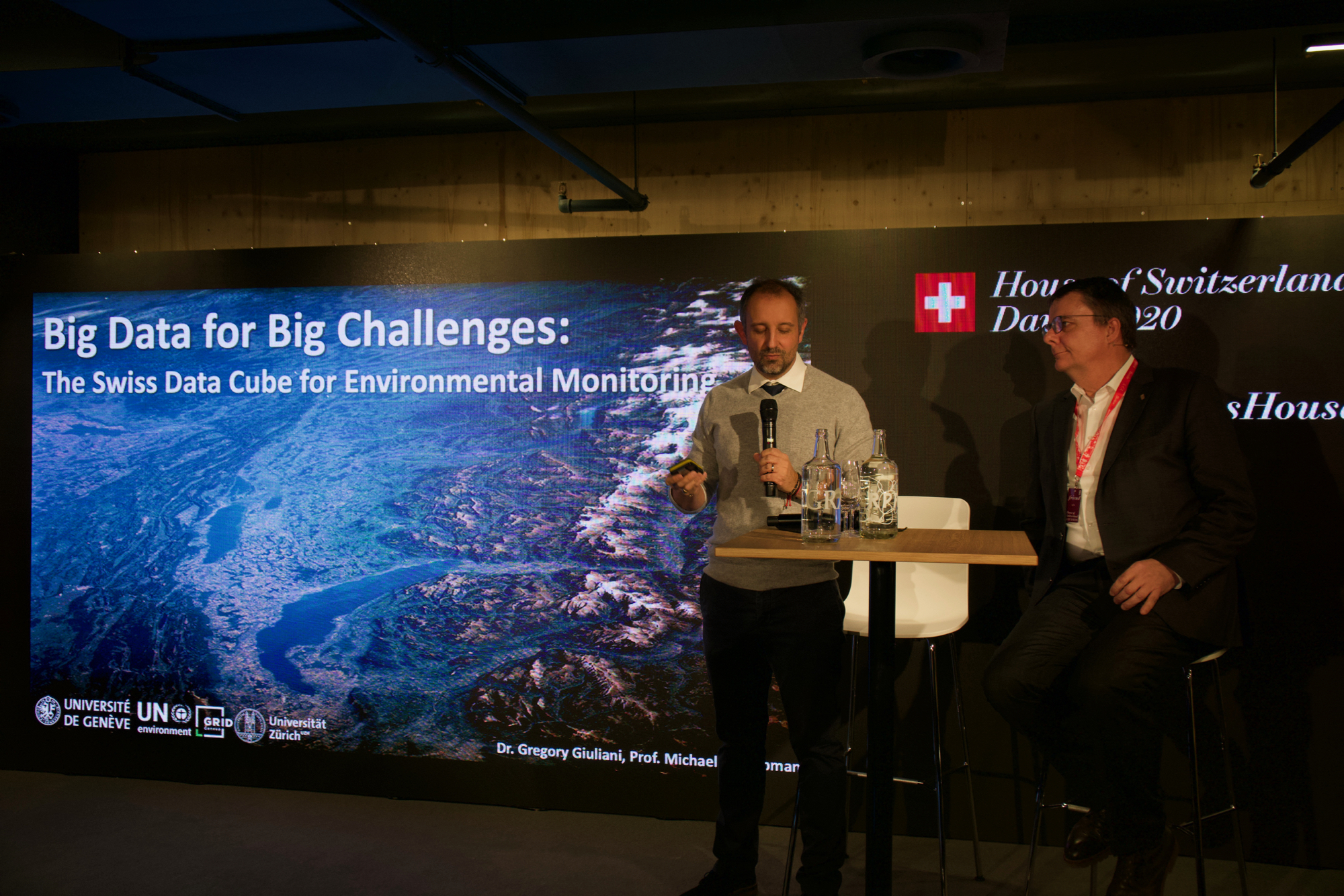UNEP/GRID-Geneva, University of Geneva and the University of Zurich were invited to present the Swiss Data Cube (SDC) at the House of Switzerland during the World Economic Forum in Davos on 23rd January 2020. The presentation of the Swiss Data Cube by Dr Gregory Giuliani (UNEP/GRID-Geneva and University of Geneva) and prof. Michael Schaepman (University of Zurich), was followed by a panel discussion gathering Dr Natalia Arcinar (Swiss Dep. Of Foreign Affairs); Dr Renato Krpoiun (Head of the State Secretariat for Education, Research and Innovation), prof. Pascal Peduzzi (director, UNEP/GRID-Geneva), prof. Michael Schaepman (Vice President, Research, University of Zurich and Ms. Veronica Scotti, Chairperson Public Sector Solutions, Swiss Re).
The rapid changes in our environment and the emergence of big data, call for innovative solutions to support the policy frameworks and related actions toward sustainable development. To address these changes, the University of Zurich and the University of Geneva have joined forces with the UNEP/GRID — Geneva and the Swiss Federal Institute for Forest, Snow and Landscape Research (WSL) to unleash the power of Big Data for monitoring the Environment with a new technology: the Swiss Data Cube (SDC). The SDC represents a new paradigm, revolutionizing the way users can interact with complex data originating from many different sources, in particular from Earth observing instruments, such as satellite imagery.
The Davos SDC event brought together scientists, policy formulators and the private sector to present and discuss the uniqueness of the SDC approach, its underlying technology as well as its broad relevance, serving a wide range of applications for environmental monitoring. The experts focused on selected key applications based on the SDC towards monitoring various environmental issues and the Sustainable Development Goals. The discussion focused on various application of the Data Cube technology e.g. climate change, agriculture, water quality, urbanization, and biodiversity and its monitoring from space. The final objective is to connect emerging challenges and opportunities to environmental monitoring at the crossroads of science, policy and society to achieve agile governance for all communities. The closing remark was made by Prof. Didier Queloz, Nobel Prize Laureate, on the linked between the techniques used in Astrophysics to deal with big data and the similar technologies used in Earth Observation.

